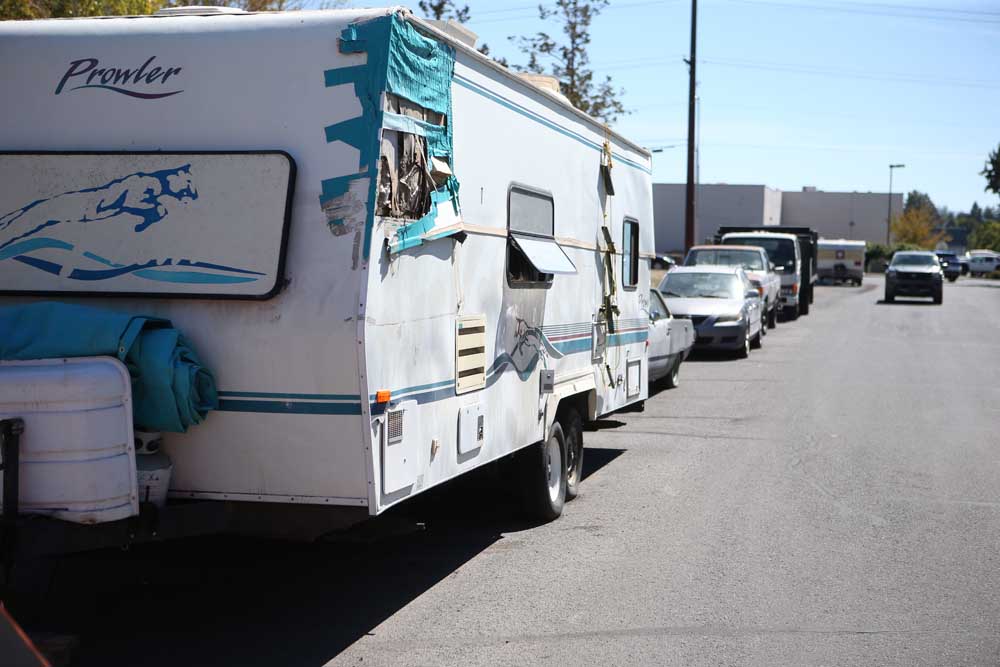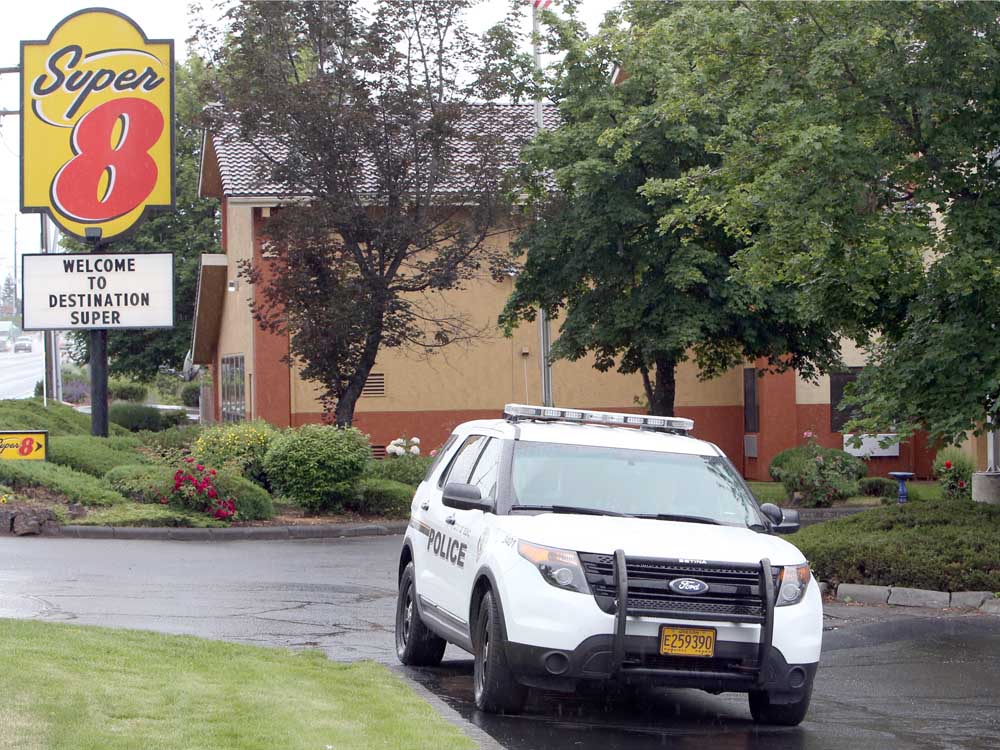Homeless outreach group pushes back on Bend proposal to change vehicle camping rules
Published 4:58 pm Thursday, September 5, 2024

- Two separate camp trailers sit parked on the edge of NE Watt Way in Bend on Monday afternoon.
A city of Bend proposal to make stricter rules for homeless people camping in vehicles on streets met pushback Wednesday evening from a nonprofit service provider group calling on the city to remove time limits on vehicle sheltering.
The majority of the City Council has indicated preliminary support for a code update to cut the time period allowed for people living in vehicles on Bend’s streets from three days to 24 hours. The change, which the council could approve at a Sept. 18 meeting, would align rules for vehicle camping with existing rules for camping in tents or otherwise sleeping on city streets or rights-of-way.
A Sept. 4 memo from the Home More Network, a nonprofit provider of homeless outreach, argues vehicles are not the same as tents, and should not be treated as such. Furthermore, the city should not crack down on vehicle sheltering, but allow people to live in their cars on the streets for extended periods of time, away from neighborhoods and under certain conditions and defined timelines, the memo states.
Safe places to park in short supply in Bend
The suggestions were presented to the council during public comment at a meeting Wednesday evening by Chuck Hemingway, a board member for Home More Network and an advocate for those experiencing homelessness.
Last summer, Hemingway was part of an unsuccessful lawsuit against the city that aimed to halt the sweep of vehicle encampments on Hunnell Road in north Bend.
That sweep pushed a few homeless people to move RVs to Watt Way, a street in east Bend. In August, they were asked to move again under the city’s parking and camping codes.
Hemingway told the council that enforcement of the 24-hour vehicle camping rule would conflict with existing City Council homelessness policy, which acknowledges that sleeping on city streets is “unavoidable” with the current availability of shelters and affordable housing.
“In Bend, this has typically meant sheltering, sometimes for extended periods of time, on City rights-of-way and City property,” the city’s homelessness policy reads.
While that statement describes the city’s approach to policies for street camping, it doesn’t set the rules for doing so, according to Ian Leitheiser, Bend’s assistant city attorney.
“Under the current code and the potential amendments, there are opportunities for people to use the public right-of-way to meet their needs, subject to reasonable rules on time, place, and manner,” Leitheiser said in an email. “Cities aren’t required to let people occupy a particular public place indefinitely, to the exclusion of others, in violation of those reasonable regulations.”
In 2022, the city adopted a code putting restrictions on where and in what way people are allowed to camp in public places. The code prohibits camping in one place for longer than 24 hours, camping near the river, shelters, neighborhoods and limits the number of camps per block.
Councilor Megan Perkins said although the code limits where and how people can camp in public in Bend, it was important to acknowledge reality while crafting the camping code.
“It is a reality that people are still living on our streets because they have no other place to go,” she said.
The Home More Network’s memo states rules that force homeless people to relocate often have unintended consequences for service providers, who spend extra time and effort searching for people made to move.
Hemingway fears a tightened policy on vehicle camping, as opposed to tent camping, could have a greater impact on homeless people because vehicles are harder to move around and the potential loss of a vehicle is greater than that of a tent.
He hopes that holding off changes to vehicle camping rules will open a larger discussion about impact of the city’s camping code.








